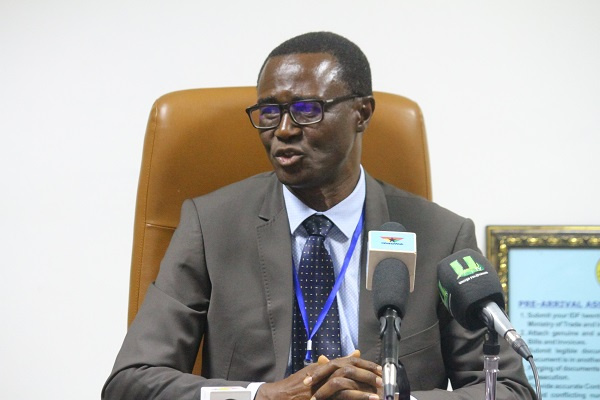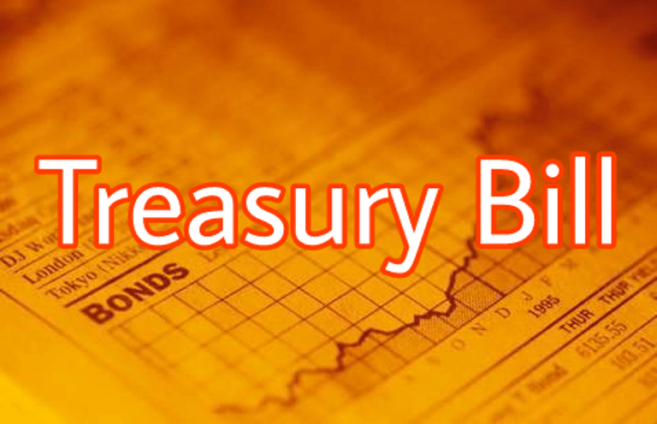The Ghana Revenue Authority (GRA) has said that it exceeded its revised revenue target of GH¢42,769.50 million for last year by mobilising GH¢45,338.69 million.
Following the achievement, the authority has set for itself a target of GH¢60 million for this year, even before the Ministry of Finance announces the amount the government expects from the GRA.
The revenue target for this year (2021), which the authority has described as “an aggressive target,” will constitute a 32.3 per cent increase over last year’s revenue collection target.
The GRA was tasked to collect a total tax revenue of GH¢47,253.95 million for the last fiscal year. The amount represented 7.6 per cent growth over the tax revenue collections, amounting to GH¢43,907.12 million for the 2019 fiscal year.
The 2020 revenue target was, however, revised to GH¢42,769.50 million as result of the global impact of COVID-19.
Strategies
The Acting Commissioner-General of the GRA, Mr Amishaddai Owusu-Amoah, made this known last Friday during interactions with journalists in Accra. He said: “I am delighted to announce that despite the COVID-19 pandemic and its negative impact on businesses, the GRA was able to meet its 2020 revised revenue target.”
He said as of December 2020, the GRA had exceeded its target by GH¢2,569.19 million, representing a positive deviation of 6.0 per cent.
That was achieved, he said, because of a number of strategic measures the authority had adopted.
He said the strategies included the roll out of the Integrated Customs Management Systems (ICUMS), the partial roll out of the Integrated Tax Application and Preparation System (ITaPS) for online filing of Personal Income Tax for employees, increased tax compliance, strengthening of audits and the set-up of a new department known as the Tax Audit and Quality Assurance Department.
He added that, the GRA undertook a number of exercises that forced defaulting taxpayers to pay up taxes they owed the state, including interest and penalties.
“The authority undertook a number of compliance exercises that unearthed revenue that otherwise would have gone undetected. It also blocked some loopholes,” Mr Owusu-Amoah said.
Moreover, the GRA boss said, heightened operations in the mining, financial and telecommunication sectors in spite of the outbreak of COVID-19 also contributed to the authority’s improved performance.
Breakdown
He said the authority’s performance last year represented a nominal growth rate of 3.3 per cent over the same period in 2019.
Giving a breakdown of the collection, he said domestic revenue grew by a nominal rate of 2.8 per cent last year while customs collection grew by 4.5 per cent.
Regarding direct taxes, he said the GRA targeted GH¢22,153.64 million and managed to raise GH¢22, 212.66 million while a target of GH¢9,698.66 in indirect taxes was exceeded and GH¢10,583.37 million raised instead.
The Customs Division of the GRA, he said, was tasked to collect GH¢10,917.20 million but it was able to garner GH¢12,583.37 million at the end of the year.
2021 target
Mr Owusu-Amoah admitted that the targets the authority had set for itself for this year “appears quite daunting at first sight, but this will not deter us. With hard work, right attitude and innovative measures we can achieve our targets.”
The Commissioner-General of the GRA said the authority has mapped out strategies to ensure that it met this year’s ambitious target.
He said some of the strategies to be employed would include the introduction of the new excise tax stamps with enhanced security features which are difficult to duplicate, the use of the unique identification number on the Ghana Card as Taxpayer Identification Number (TIN) to help identify and rope in eligible taxpayers.
Informal sector
Other approaches include taxing players in the e-commerce market, completion of the restructured Domestic Tax Revenue Division by the end of the first quarter to bring services closer to taxpayers for improved compliance and service delivery, as well as the deployment of information technology tools for paying taxes conveniently.
The rest, he said, comprised increased tax education exercises to ensure voluntary tax compliance, prosecution of tax defaulters and persons who infringed on the tax laws and taxing of high net worth individuals in the country such as musicians, actors and actresses, pastors and international footballers, among others.
















